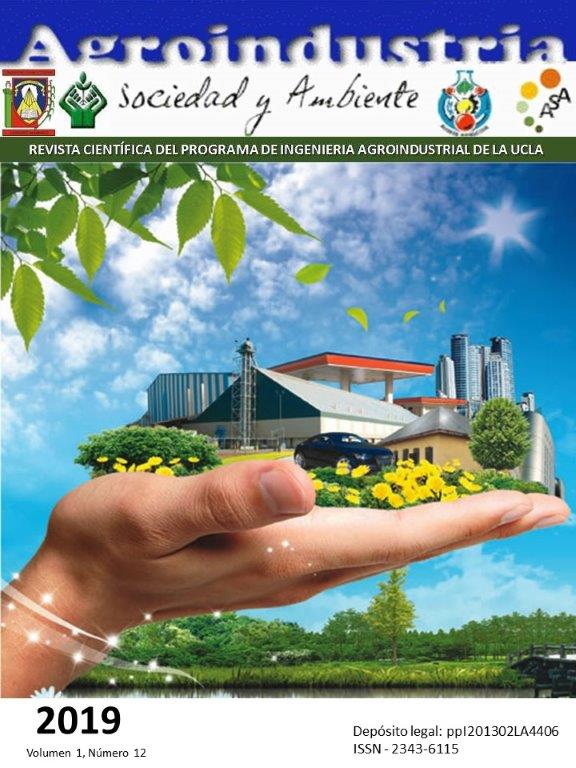Correspondability, water sustainability and sustainable development objective (SDG) 6
Keywords:
Communitarian Stewardship, Water Sustainability, ODS6Abstract
In Venezuela, a large number of river channels are threatened by man-made aggressions from pollution, climate change, urban development and changes in nature, such as deforestation. Each one with a great specific impact, generally directly on the ecosystems and, in turn, on the water resources themselves. The objective of the essay is to build a theoretical approach to water co-responsibility and sustainability defined in the Sustainable Development Goal (SDG) 6 of the 2030 Agenda of the United Nations (UN) in the La Guamita I and II Parish Communities The Recreation of the San Fernando Municipality of the Apure State, being the Rio Apure, the tributary necessary for its subsistence. We used the postpositivist approach, and the phenomenological-hermeneutic method. The results allow us to notice scarce community co-responsibility and little homogeneity with the SDO6, so that reflections on such co-responsibility are produced from an interaction perspective, recommending the Communal Councils and authorities to synchronize self-management from the perspectives of SDG6.
Downloads
References
Comisión Económica para América Latina y el Caribe (CEPAL). (2018a).[En línea]. Disponible en https://repositorio.cepal.org/bitstream/handle/11362/40155/15/S1700334_es.pdf. [Consulta: 2018, Febrero 21].
Comisión Económica para América Latina y el Caribe (CEPAL) (2018b).Agenda 2030 y los Objetivos de Desarrollo Sostenible Una oportunidad para América Latina y el Caribe.[En línea].Disponible:https://repositorio.cepal.org/handle/11362/40155 [Consulta: 2018, Febrero 17].
Constitución de la República Bolivariana de Venezuela (1999) Gaceta Oficial Extraordinaria N° 36.860 del 30 de diciembre.
Gobernación del Estado Apure. (2012). PrimerPlan de Desarrollo Socialista del Estado Apure 2012-2016. [En línea]. Disponible: https://www.apure.org.ve [Consulta: 2018, Octubre 13].
Hidrollanos. (2018).Visitas a Estación Operativa. San Fernando de Apure, 2016-2018.
Instituto Nacional de Estadística (INE). (2011). República Bolivariana de Venezuela.
Ley Orgánica de los Consejos Comunales. (2009). Gaceta Oficial 39.335 del 28 de Diciembre.
Martínez, M. (2009).Ciencia y Arte en la Metodología Cualitativa. 2.Ed.México. Trillas. ISBN 978-968-24-7568-9.
Organización de las Naciones Unidas para la Alimentación y la Agricultura (FAO). (2018). La importancia del manejo sostenible del agua. [En línea]. Disponible:http://www.fao.org/land-water/water/es/ [Consulta: 2018, Octubre 14].
Organización de las Naciones Unidas (ONU). (2015). El derecho humano al agua potable y el saneamiento. [En línea]. Disponible: https://documents-dds-ny.un.org/doc/UNDOC/GEN/N15/231/42/PDF/N1523142.pdf?OpenElement [Consulta: 2018, Febrero 26].
Organización de las Naciones Unidas (ONU) (2018a) UN Water.[En línea].Informe de las Naciones Unidas sobre el Desarrollo de los Recursos Hídricos. Soluciones Basadas en la Naturaleza para la Gestión del Agua. Disponible: http://unesdoc.unesco.org/images/0026/002614/261494s.pdf. [Consulta: 2018, Octubre 11].
Organización de las Naciones Unidas (ONU). (2018b).Soluciones Basadas en la Naturaleza. ISBN 978-92-3-300083-4.[En línea]. Disponible: http://unesdoc.unesco.org/images/0026/002614/ 261494s.pdf. [Consulta: 2018, Octubre 11].
Plan de la Patria (2013-2019). (2013).Gaceta Oficial No 6.118 Extraordinario, 4 de diciembre de 2013.
Quispe, Aravire y Maldonado. (2018).Participación de los Actores en el Desarrollo Local en entornos rurales.[En línea]. Revista de Ciencias Sociales (RCS) Vol. XXIV(3):62-82. Disponible: https://www.23962-37982-1-SM.pdf.[Consulta: 2018, Octubre 16].
Sánchez, R. (2017). Recursos Naturales e Infraestructura.[En línea]. La discriminación de costos y beneficios en la evaluación de proyectos transnacionales de infraestructura y otros métodos complementarios.Disponible: publicaciones@cepal.org. [Consulta: 2018, Octubre 15].
Published
How to Cite
Issue
Section




